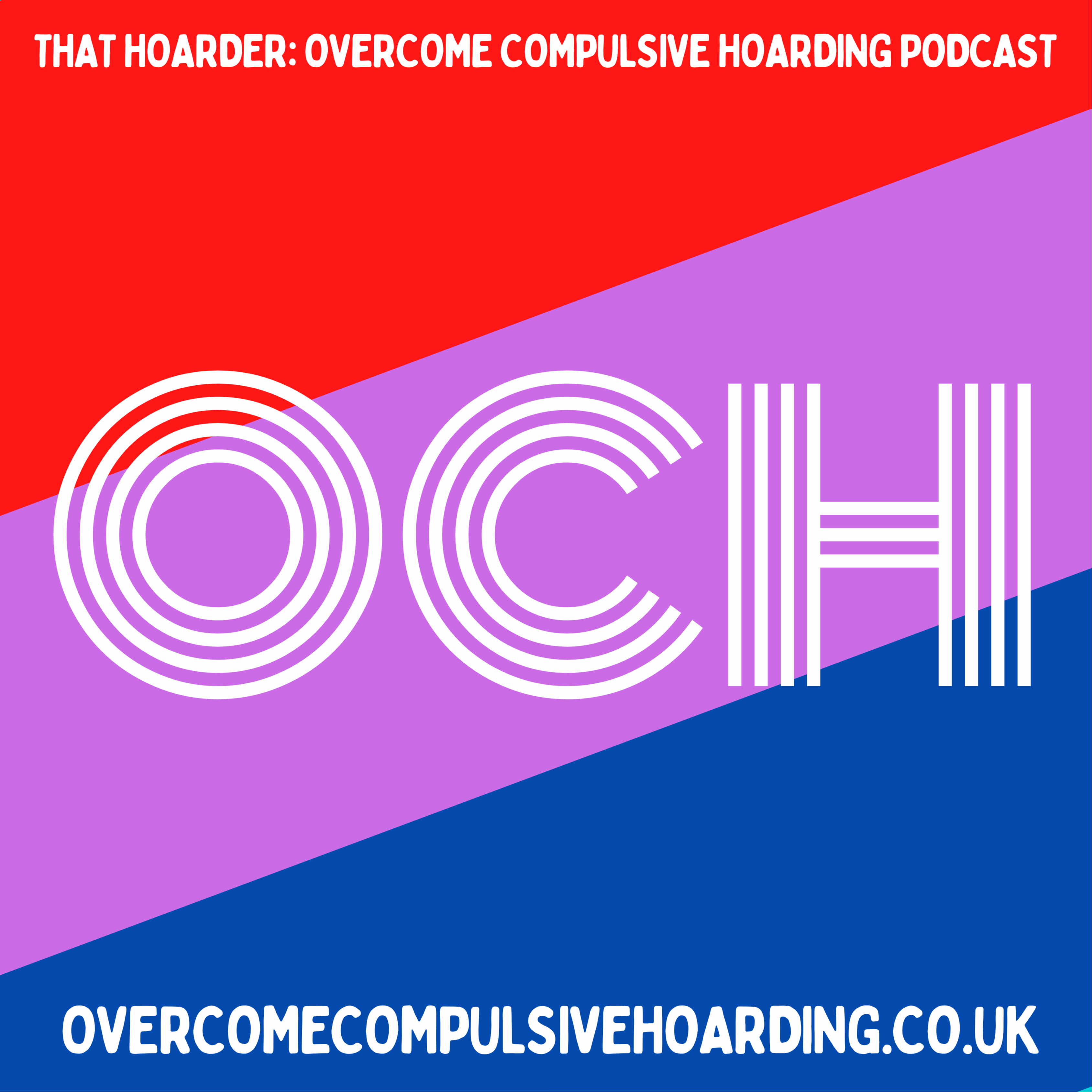Listen "#205 How to recover without burning out: using pacing to find your dehoarding rhythm"
Episode Synopsis
Come to a Dehoarding Accountability Zoom Session: http://www.overcomecompulsivehoarding.co.uk/ticket
Subscribe to the podcast: https://www.overcomecompulsivehoarding.co.uk/subscribe
Podcast show notes, links and transcript: http://www.overcomecompulsivehoarding.co.uk/
Getting on top of hoarding disorder isn’t about powering through in one big go. It’s all about slowing down, pacing ourselves, and making sure our approach is actually sustainable, both for our bodies and our minds.
In this episode, I talk honestly about the risks of burnout and emotional overload when we try to rush the process, and why giving ourselves permission to work in small, manageable steps is key.
I’ll share practical ways to set our own pace, spot the warning signs of pushing too hard, and celebrate the progress we make - even when it’s slower than we’d like.
The Nature of Recovery from Hoarding Disorder
Recovery isn’t a race or a sprint
Pressure to fix things quickly—internal and external
Debunking the ‘quick fix’ myth
Importance of sustainability in recovery
Physical Aspects of Dehoarding
Physical tasks: sorting, organising, donating, recycling
The relentless and exhausting nature of physical dehoarding
Risks of pushing too hard:
Physical exhaustion and injury
Impact of chronic pain, health problems, disability
Decision-making fatigue from exhaustion
The danger of creating a more overwhelming mess
Risks of Burnout
Burnout as a consequence of overexertion
Emotional impact: quitting, avoidance, dread
Dehoarding becomes associated with pain and suffering
Emotional Aspects of Pacing
Unique emotional relationships with possessions
Associations, memories, grief, nostalgia, identity
Anxiety and emotional flooding in decision-making
The consequences of pushing past emotional limits:
Panic, anxiety, rumination
Avoidance and procrastination
Loss of confidence in decisions
Swinging between extremes: keeping everything vs. discarding everything
The Impact of Emotional Flooding
Damaging relationship with recovery
Recovery viewed as painful or traumatic
Unrealistic expectations for overnight emotional change
Persistence of difficult emotional patterns despite progress
Non-Linear Nature of Progress
Understanding setbacks and relapses as part of the process
Importance of patience and realistic expectations
The need to build new emotional and cognitive pathways over time
Positive Signs of Emotional Progress
Ability to sit with discomfort and uncertainty
Recognising and managing patterns and triggers
Gradual increase in resilience and emotional tolerance
Recognising Gradual Physical and Emotional Recovery
Improved recovery time after difficult sessions
Growing confidence in handling challenges
Learning that healing and progress are not linear
Practical Approaches to Pacing
Time-based strategies:
Working in manageable time chunks
Scheduling regular breaks and days off
Focusing on sustainable, consistent sessions over marathons
Decision-based strategies:
Limiting the number of decisions per session
Identifying easier vs. harder tasks or categories
Quick wins to boost motivation
Checking in with oneself physically and emotionally during work
Building in soothing or rewarding activities post-session
Signs of Sustainable Pacing
Completing sessions feeling tired but not destroyed
Feeling able to return for future sessions without dread
Making decisions that feel good in retrospect
Enjoyment and pride in gradually improving one’s space
Adapting Pace to Life Circumstances
Pace varies with health, mood, season, responsibilities
Finding what works for the individual and the current season of life
Compassionate Recovery
The importance of self-compassion in setting and respecting limits
Celebrating progress and honouring our human experience
Links
Come to a Dehoarding Accountability Zoom session: Accountability Booking Form
Website: Overcome Compulsive Hoarding
Become a Dehoarding Darling
Submit a topic for the podcast to cover
Questions to ask when dehoarding: https://www.overcomecompulsivehoarding.co.uk/podquestions
Instagram: @thathoarderpodcast
Twitter: @ThatHoarder
Mastodon: @[email protected]
TikTok: @thathoarderpodcast
Facebook: Overcome Compulsive Hoarding with That Hoarder
Pinterest: That Hoarder
YouTube: Overcome Compulsive Hoarding with That Hoarder
Reddit: Overcome Compulsive Hoarding with That Hoarder subreddit
Help out: Support this project
Sponsor the podcast
Subscribe to the podcast
Subscribe to the podcast here
 ZARZA We are Zarza, the prestigious firm behind major projects in information technology.
ZARZA We are Zarza, the prestigious firm behind major projects in information technology.
